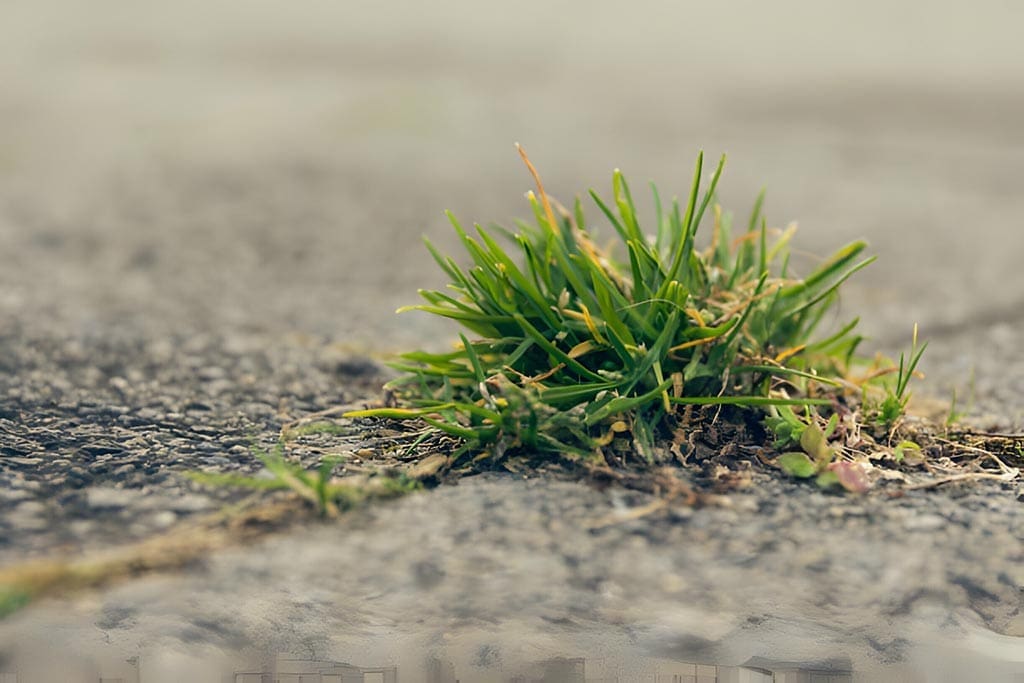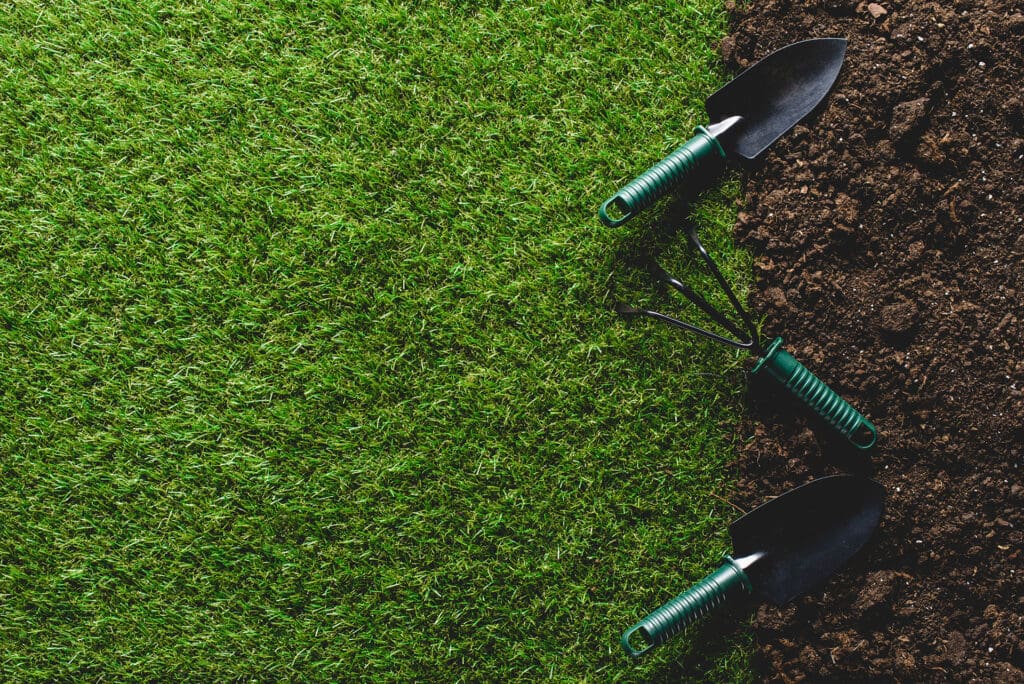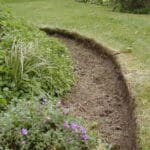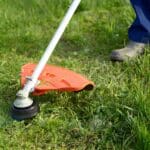Imagine bleach as a double-edged sword in your battle against weeds. You might wonder, does bleach truly have the power to eliminate these pesky intruders from your garden or driveway?
Before you reach for that bottle of bleach, there are some important considerations to ponder. While using bleach to tackle weeds may seem promising, the reality is more nuanced.
Stay tuned to explore the effectiveness, advantages, drawbacks, and safety aspects of using bleach as a weed killer.
Effectiveness of Bleach on Weeds

When considering the effectiveness of bleach on weeds, it’s important to understand its potential impact on controlling unwanted plant growth. One key factor to consider is the bleach concentration. Higher concentrations of bleach are more likely to effectively kill weeds, as they contain more of the active ingredient that disrupts the plant’s cellular processes. However, caution must be exercised when using high concentrations, as they can harm surrounding vegetation and the environment.
Another crucial aspect is weed root penetration. Bleach damages the cell structure of plants, including the roots, which are vital for a plant’s survival. When applied directly to the weed, bleach can seep into the root system, killing the plant from the inside out. This method of weed control can be particularly useful for targeting deep-rooted and stubborn weeds that are hard to eradicate by other means.
Understanding the relationship between bleach concentration and weed root penetration is essential for maximizing the effectiveness of bleach as a weed killer while minimizing its potential negative impacts.
Pros of Using Bleach as Weed Killer
Using bleach as a weed killer offers several advantages, making it a practical and effective solution for controlling unwanted plant growth. One of the key benefits is the ability to customize the strength of the bleach solution by adjusting the bleach concentration. This flexibility allows you to tailor the potency of the weed killer based on the types of weeds you’re targeting and the extent of the infestation.
Additionally, the application method of bleach as a weed killer is relatively straightforward. You can apply the bleach solution directly to the weeds using a spray bottle or a garden sprayer, ensuring targeted treatment while minimizing the impact on surrounding vegetation. This precise application method can be particularly useful for spot treatments in gardens or driveways where weeds may grow between cracks or in specific areas.
Cons of Using Bleach on Weeds

While bleach can effectively kill weeds, several drawbacks to using it as a weed killer should be considered. One major concern is the environmental impact of using bleach. Bleach is a harsh chemical that can leach into the soil and potentially harm beneficial microorganisms, insects, and other plants in the area. This can disrupt the ecosystem balance and have long-lasting effects on the environment.
Additionally, using bleach as a weed killer poses health risks to both humans and animals. The fumes produced by bleach can be harmful if inhaled, leading to respiratory issues and irritation. Direct contact with bleach can cause skin and eye irritation and, in severe cases, may even result in chemical burns. Pets and wildlife may also be inadvertently exposed to bleach, leading to poisoning or other health complications.
Considering these environmental and health risks, it’s important to explore alternative methods of weed control that are safer for both you and the environment.
Safety Precautions When Using Bleach
Always wear protective clothing and gloves to handle bleach as a weed killer safely. Precautionary measures are crucial to prevent potential harm to yourself or the environment. When diluting bleach for weed control, it’s essential to follow proper dilution ratios to avoid any negative consequences.
When working with bleach outdoors, choose a calm day to prevent the wind from spreading the bleach onto unintended large areas. Before applying bleach to weeds, carefully read and follow the manufacturer’s instructions on the product label. Remember to keep children and pets away from the treated area until the bleach has completely dried.
Properly disposing of any leftover bleach solution is also important to prevent contamination of water sources. Rinse any equipment used for applying bleach thoroughly to avoid accidental exposure in the future. By taking these precautionary measures and following proper dilution ratios, you can effectively use bleach as a weed killer while minimizing risks to yourself and the environment.
Alternative Natural Weed Killer Options
Consider utilizing natural weed killer options as environmentally friendly alternatives to chemical solutions.
Organic solutions and homemade remedies can effectively control weeds without harsh chemicals. One popular natural weed killer is vinegar. Its acetic acid content can help kill weeds by drying them out. Simply spray undiluted vinegar on the weeds, targeting the leaves and stems for best results.
Another option is using salt water, a natural desiccant that can dehydrate weeds. Mix salt with water, ensuring it dissolves completely, and then spray it on the unwanted plants. Be cautious when using saltwater, as it can make the soil unsuitable for other plants.
Additionally, boiling water can be a simple yet effective weed killer. Pouring hot water on weeds can scald and kill them, though it may require multiple applications for stubborn weeds.
These natural alternatives are easier to make, cost-effective, and safer for the environment than chemical herbicides.
Frequently Asked Questions

Can Bleach Harm Surrounding Plants or Soil When Used as a Weed Killer?
High bleach concentrations can harm surrounding plants and soil when used as a weed killer. Proper application methods are crucial to minimize environmental impact. While bleach may be effective against weeds, caution is advised.
How Long Does It Take for Bleach to Fully Kill Weeds?
To optimise bleach’s effectiveness in killing weeds, consider timing. Wait 2-3 days for results. Environmental impact concerns arise from runoff affecting nearby plants and soil. Use caution and target only weeds directly.
Will Using Bleach as a Weed Killer Affect the Ph Levels of the Soil?
Using bleach as a weed killer can affect soil pH levels. This can harm plants and beneficial organisms. Safety precautions include avoiding runoff into water sources. Consider eco-friendly alternatives to prevent negative effects on the environment.
Can Pets or Wildlife Be Harmed by Coming Into Contact With Bleach-Treated Weeds?
Ensure pet safety by keeping them away from bleach-treated areas. Wildlife may be impacted if exposed. Consider environmental concerns when using bleach. Although effective for killing weeds, minimising risks to pets and wildlife is crucial.
Are There Any Specific Types of Weeds That Bleach Is More Effective at Killing Than Others?
When dealing with different weed species, bleach can vary in effectiveness. It’s essential to apply bleach carefully and consider safety precautions. Some weeds may be more susceptible to bleach treatment but always research and proceed cautiously.
Conclusion
In conclusion, bleach can effectively kill weeds but comes with its own pros and cons.
Taking safety precautions when using bleach as a weed killer is important, as it can harm the environment and human health.
Consider exploring alternative natural weed killer options to avoid the risks of using bleach.
Choosing a good weed killer should align with your values and priorities for a safe and healthy garden.




